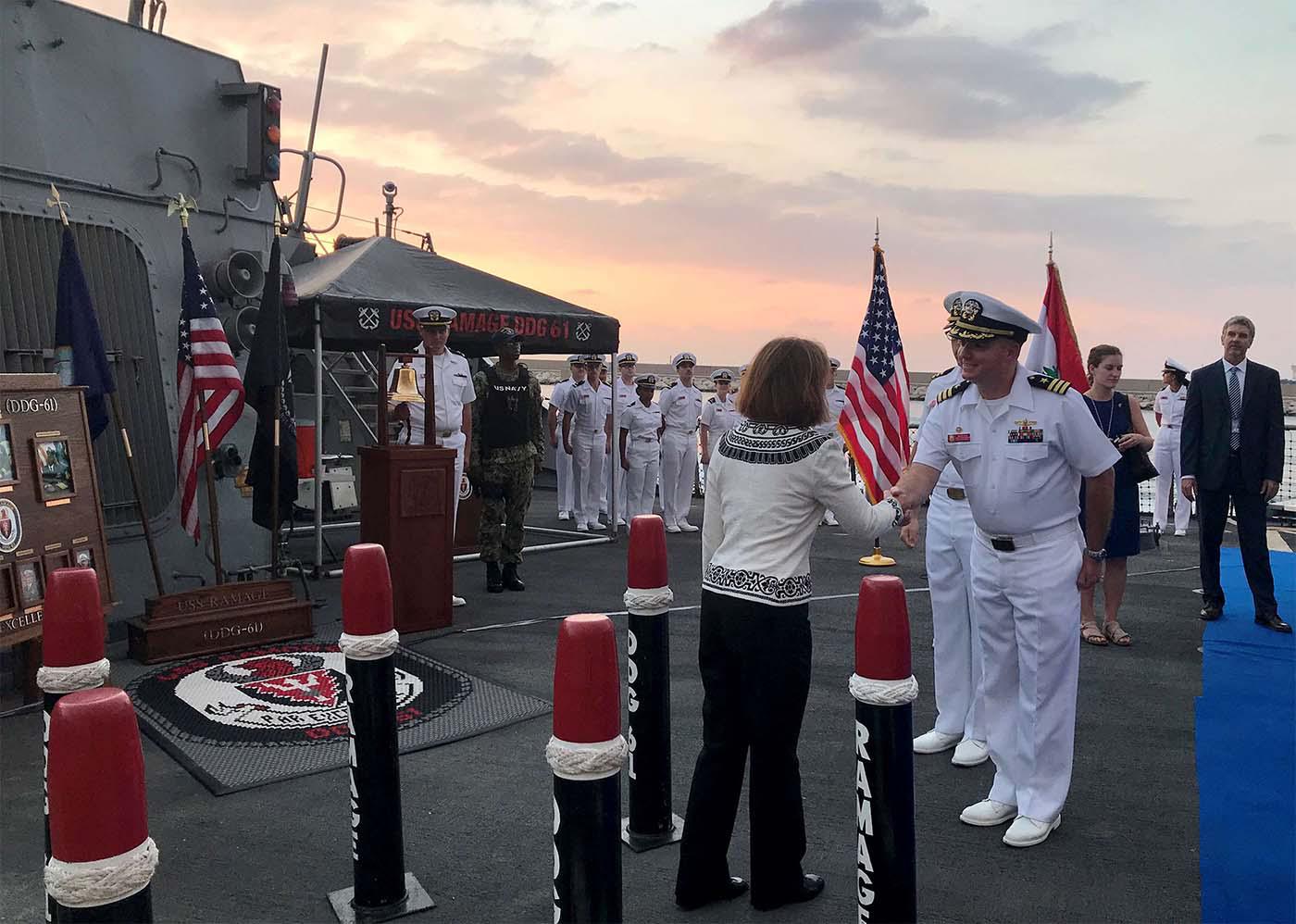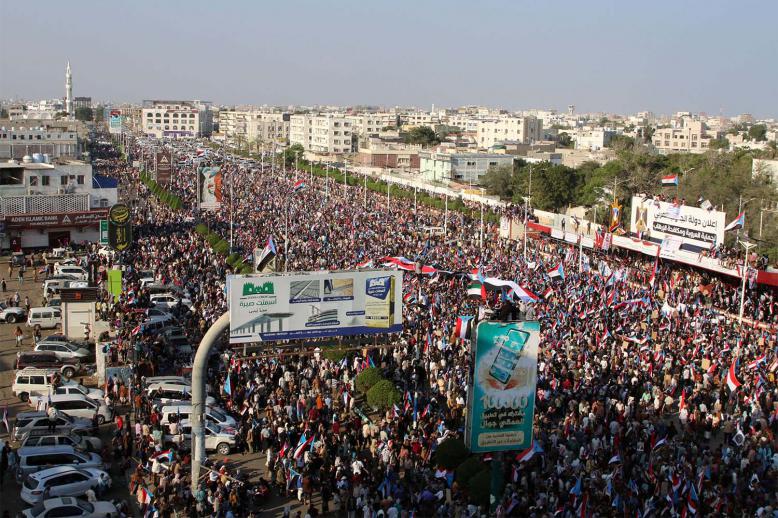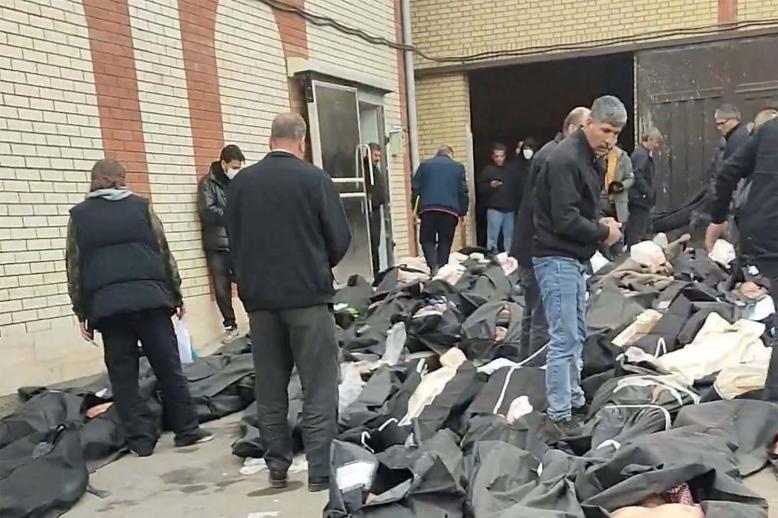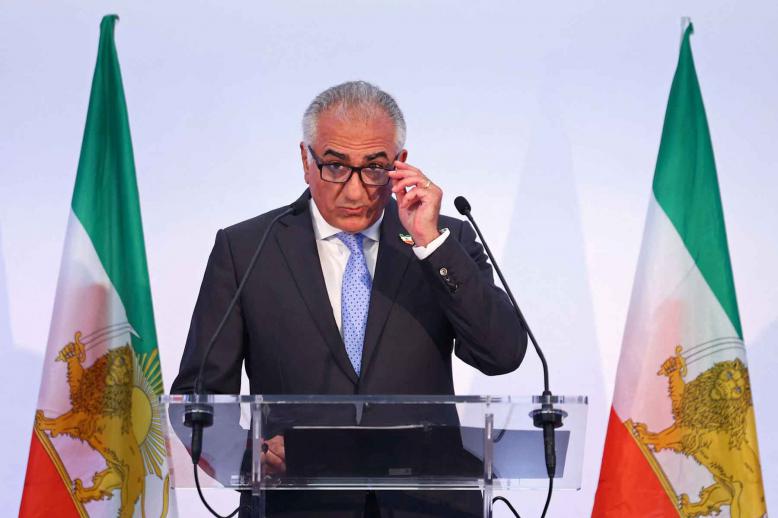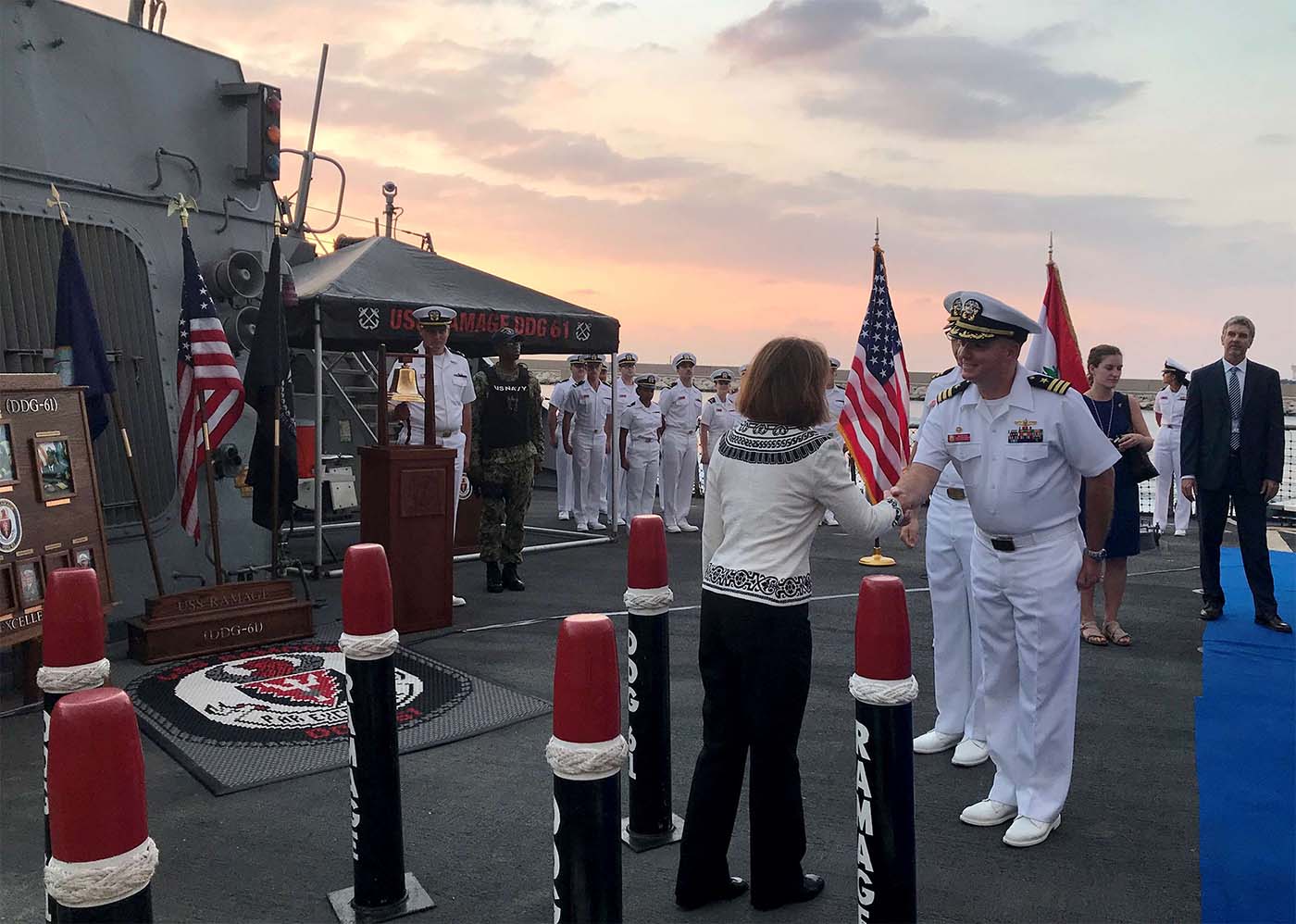Hezbollah watches as storm clouds gather over the Gulf
TUNIS — With tensions between the United States and Iran increasing after a drone and missile strike targeted Saudi Arabia’s Aramco oil facility, the position of Lebanon, as the operational base of Hezbollah, one of Tehran’s most potent allies, has taken on new significance.
Lebanon is of concern to US diplomats chiefly because of tensions between Hezbollah and another US ally, Israel. Should the tensions brewing in the Gulf explode into war, the future of Lebanon may take on worldwide significance.
Underscoring Lebanon’s role on the world stage was the visit to Beirut of the USS Ramage, a US Navy Arleigh-Burke-class guided missile destroyer, the same day as the Aramco attack and marking the first such visit by a US ship to Lebanon in more than 30 years.
Ostensibly, the Ramage stop was an expression of goodwill but the timing was unlikely coincidental, coming during escalating US sanctions on Hezbollah members and allied institutions, including the Jammal Trust Bank and tensions along the Israeli border.
On September 1, both sides exchanged fire over the border. Eight days later, Hezbollah fighters claimed to have downed an Israeli drone over southern Lebanon. That was less than a week before the Ramage’s visit.
For Western planners, post-war Lebanon has provided opportunity and threat, a contradiction encapsulated with the arrival of the Ramage. Lebanon’s confessional system of governance offers a rare example of people from different creeds and sects coming together within a democratic framework to establish peaceful government but it also remains home to Hezbollah and its weapons arsenal.
Partially out of a recognition of Lebanon’s rare political position, partly out of an understanding of its location with borders on both Israel and Syria, the United States and its Western allies are significantly invested in the Lebanese state.
Over the last decade, the United States is thought to have provided Lebanon’s armed forces with $2.3 billion in aid. The United Kingdom and France have contributed in shoring up the Lebanese Army to create a state-controlled bulwark against Hezbollah’s and, by extension, Iran’s growing military influence in the country and region.
However, the standoff with Iran and growing tensions between Hezbollah and Israel positioned Lebanon as a key player in the Middle East drama.
“Lebanon itself is relatively low in regional priorities for the US,” said Thomas Abi-Hanna, a global security analyst with intelligence analysts Stratfor, “but it is important in the role that it plays in tensions between the US and Iran.”
While the relatively limited conflict between Hezbollah and Israel continues, they “do not have the global repercussions of those emanating from US-Iranian tensions. They are an important factor on a regional scale. Israel is among the United States’ closest allies and Hezbollah is one of the primary security threats which Israel faces,” Abi-Hanna said.
However, it is perhaps Iran’s control over Hezbollah and its influence in Lebanon that are driving US interest.
“The Hezbollah-Israel tensions as they are related to Iran’s regional growing precision missile facilities and production are very important to the US,” said Hanin Ghaddar, a visiting fellow at the Washington Institute. “Although it is doubtful that the US is going to go beyond sanctions as measures to contain Hezbollah, Israel might take different measures, similar to the Dahiyeh drone attack and Iraq-Syria strategy to eliminate these facilities. The US will probably help with intelligence and diplomatic means.”
That relationship could drastically shift. “That might change if a serious confrontation starts between the US and Iran. Hezbollah has already made statements saying that it will not stand aside and Iran might want to use Hezbollah — its strongest force in the region — if and when a big war breaks,” Ghaddar said.
Lebanon remains at the periphery of the storm brewing over the Gulf. However, for Hezbollah, well-equipped by Iran and with legions of fighters hardened by battle experience in Syria positioned along the Israeli border, how long that might remain the case is uncertain.
Simon Speakman Cordall is a freelance writer.
Copyright ©2019 The Arab Weekly


